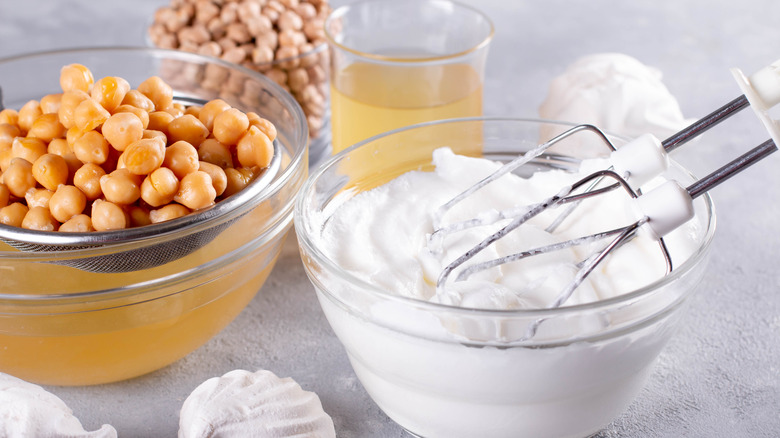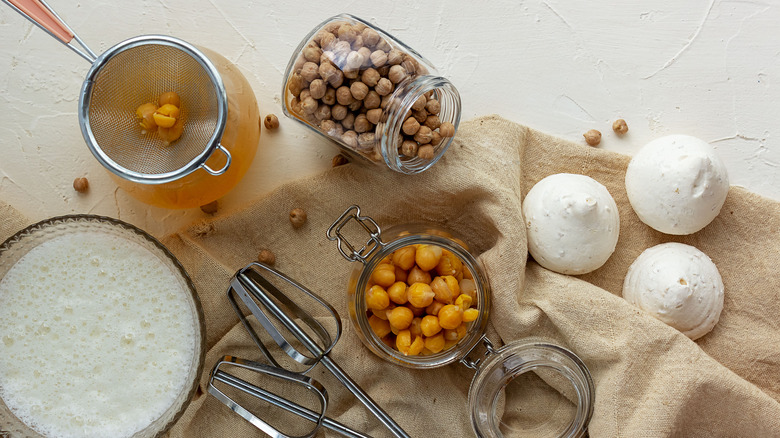The Ratio To Remember When Substituting Aquafaba For Eggs
Since the beginning of the COVID-19 pandemic in 2020, Food & Beverage Insider reports that more and more people have adopted vegan and flexitarian diets. Stemming from an increased awareness of personal and environmental health, the trend reflects buyers' shopping behaviors, which have leaned increasingly towards plant-based options. As a result, stores are full of more vegan and vegetarian options than ever — some that were not thought of as possible (per Eater).
Among refrigerators full of never-ending milk alternatives, soft and hard vegan cheeses, fermented dairy-free yogurts, Beyond Meat's meat-less burgers, chicken nuggets, and steak, vegan and flexitarian eaters have more buying options than ever. With innovations like Just Egg, this is also good news for people with egg allergies. But, even with modern egg replacements, ingredients like apple sauce, chia seed eggs, and bananas are still considered some of the absolute best egg substitutes – aquafaba being a major one.
From vegan cocktails to meringues, the liquid found inside your canned chickpeas proves that you can create vegan magic even with the most basic pantry items. But there's an important ratio you'll want to keep in mind before you do.
Aquafaba ratios vary from baking into goods or mixing into drinks
When baking, 3 tablespoons of aquafaba for one egg, 2 tablespoons for one egg white, and 1 tablespoon for an egg yolk should do you well (per Food & Wine). As Kelsey Youngman, Food Editor at Food & Wine, explains, aquafaba is an amazing egg substitute because it can trap air, much like The Food Untold says an egg white would. In fact, chickpeas contain similar proteins to eggs — albumins and globulins — that make them both vital for creating froth-like consistency (via Serious Eats).
When beaten with a bit of sugar and cream of tartar, aquafaba whips into stable peaks, holding its shape just as beautifully as an egg would. But Youngman also says it can give a light, stable structure by acting as a binder in your baked goods.
Coffee cake, waffles, muffins, and vegan oatmeal pancakes are just a few dishes you can elevate with a bit of aquafaba. Even using aquafaba in cocktails is up for consideration, as it shakes up wonderfully as an egg substitute in your sours and fizzes. For your egg-less foamy cocktails, Keith Corwin, a bartender from Berlin, told Tales of The Cocktail that 1 ounce of aquafaba per egg white is best.

